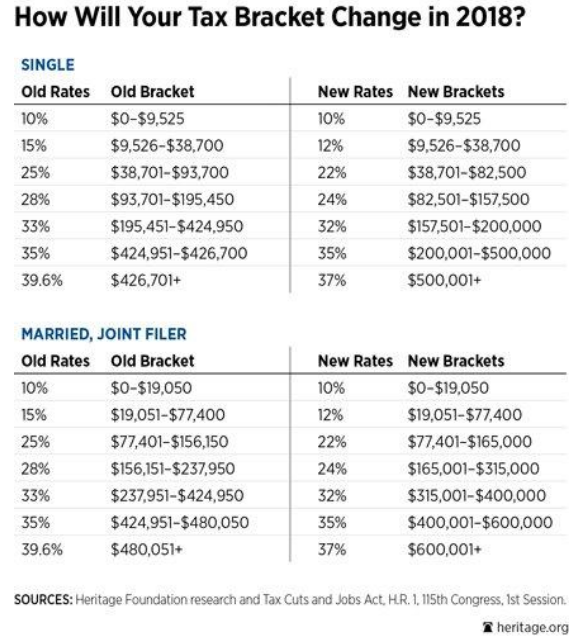The New Tax Law And How It Affects Individual Taxpayers

Right now, everyone is scrambling to understand how the recently passed tax law is going to play out.
None of us will fully feel the impact or this tax law or understand the in’s and out’s before we file our 2018 taxes. Thus, all we can do is attempt assessing who is going to be hurt. And who is going to benefit from the changes.
When filing your 2017 taxes, everything will be the same as it was in the past. In fact, the first taxpayers who are likely to see any difference are those who collect a paycheck. Depending on the tax bracket you are in, you may be coming home with a little more or a little less in that paycheck starting in February.

State And Local Taxes And Property Taxes Affected
Others who will be affected by the new tax laws are prospective new homebuyers. If you buy a home this year, when you go to file your 2018 taxes next year, state and local income taxes plus property taxes, added together, will no longer be deductible beyond the annual sum of $10,000. For some, that will make buying a house with high property taxes — or even buying at all — less attractive. If you’re looking at homes that require mortgages over $750,000, you won’t be able to take a tax deduction on the interest for amounts above that level. Current loans are unaffected by the changes.
Medical Expenses Still Deductible
Initially, the House bill was eliminating the provision allowing taxpayers to deduct costs of high medical expenses. However, that provision did not make it into law. In 2018 and 2019, medical expenses will only need to make up 7.5% of taxpayers’ income. After that, those medical costs, which include everything from prescription drugs to equipment, have to make up at least 10% of taxpayers’ income.
That’s some good news for lower income Americans since, according to the Congressional Research Service, “3 percent of tax filers who earn less than $20,000 use the medical expenses deduction, compared to less than 1 percent of people earning more than $1 million.”
Thank goodness this deduction was preserved. When you think about it, most people who earn more than $1 million have health insurance or they can pay for medical services without having insurance. For those taxpayers, in order to get above the 10 percent threshold, they would have to spend at least $100,000 out of pocket on medical expenses in the course of one year. But someone who earns $20,000 would only need to spend $2,000 on medical expenses to cross the 10 percent threshold. And this is also a demographic that is less likely to have health insurance coverage.
Other Areas Affected
• The tax deduction for interest paid on home equity debt isn’t allowed
• The deduction for state and local taxes (SALT) is limited to $10,000 a year. This may include:
- Property taxes
- Income taxes or sales taxes
- A combination of the first two.
• Casualty and theft loss deductions are also eliminated, except for losses occurring in federal disaster areas.
• The standard deduction has be doubled to $12,000 for singles and $24,000 for married couples.
• Individuals over 65 or blind — and married — can claim at least $1,300 more in deductions. The break is $1,600 for singles.
Looking to find an experienced estate lawyer in the Georgia area who is skilled in asset protection and estate plan preparation? Shannon Pawley is an attorney in Georgia with expertise in estate planning and asset protection. Shannon can provide assistance with creating an estate plan to include making a will and how to establish a trust properly. If you have questions about asset protection or questions about making an estate plan, reach out to Shannon and she will be glad to help answer all the estate planning questions you might have!







